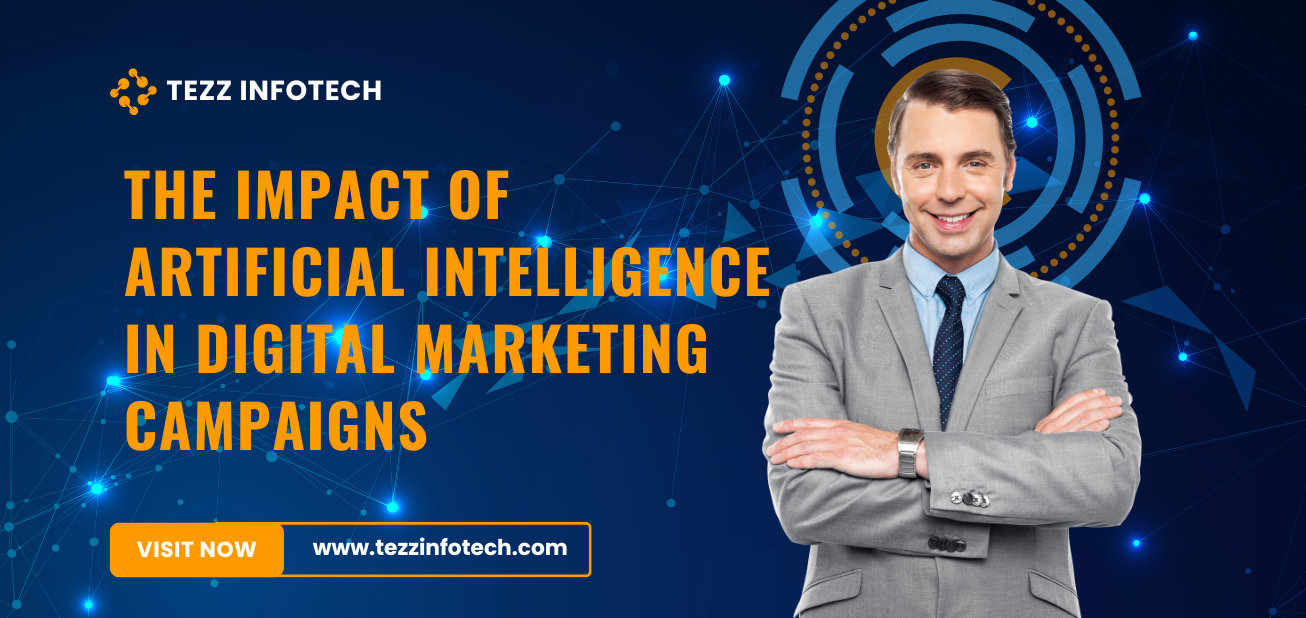The Impact of Artificial Intelligence in Digital Marketing Campaigns

One of the most transformative innovations in recent years has been the integration of artificial intelligence (AI) into digital marketing strategies. AI is reshaping how marketers analyze data, personalize content, engage with customers, and optimize their campaigns. This technology’s ability to learn and adapt in real time is opening up new avenues for creating more effective and efficient marketing strategies. We will explore the multifaceted applications of AI that are revolutionizing digital marketing.
Understanding Artificial Intelligence in Digital Marketing
Artificial intelligence refers to the simulation of human intelligence processes by machines, particularly computer systems. In digital marketing, AI algorithms are trained to analyze vast amounts of data, identify patterns, and make data-driven decisions in real-time. This enables marketers to automate tasks, personalize experiences, and optimize campaigns with unprecedented precision.
Personalization at Scale
One of the most significant contributions of AI to digital marketing is its ability to deliver personalized experiences at scale. By leveraging machine learning algorithms, marketers can analyze customer behavior, preferences, and demographics to tailor content and recommendations to individual users. Whether it’s personalized product recommendations, targeted email campaigns, or dynamic website content, AI empowers marketers to deliver the right message to the right person at the right time, maximizing engagement and conversion rates.
Predictive Analytics
Predictive analytics is another area where AI shines in digital marketing. By analyzing historical data and identifying patterns, AI algorithms can forecast future trends, customer behavior, and campaign performance with remarkable accuracy. This enables marketers to anticipate market shifts, optimize ad spend, and proactively adjust their strategies to stay ahead of the competition. From predicting customer churn to forecasting sales trends, AI-driven predictive analytics empowers marketers to make informed decisions and drive better outcomes.
Chatbots and Virtual Assistants
AI-powered chatbots and virtual assistants have become integral components of digital marketing strategies, especially in customer service and engagement. These intelligent bots use natural language processing (NLP) and machine learning to interact with customers, answer queries, provide assistance, and even facilitate transactions in real-time. By automating routine tasks and providing 24/7 support, chatbots enhance the customer experience, increase efficiency, and drive conversions. Additionally, they collect valuable data that can be used to improve future interactions and personalize marketing efforts further.
Content Creation and Optimization
AI tools are revolutionizing content creation and optimization, enabling marketers to produce high-quality content at scale. From automated copywriting to image and video generation, AI algorithms can generate creative assets that resonate with target audiences. Moreover, AI-driven content optimization tools analyze performance metrics and user feedback to refine content strategies, improve engagement, and enhance SEO. By leveraging AI, marketers can streamline the content creation process, boost productivity, and deliver content that resonates with their audience.
Enhanced Targeting and Ad Optimization
AI-powered advertising platforms are transforming the way marketers target audiences and optimize ad campaigns. These platforms use machine learning algorithms to analyze user data, segment audiences, and deliver hyper-targeted ads across various channels. By continuously optimizing ad placements, creatives, and bidding strategies based on real-time data insights, AI maximizes ad performance and ROI. Whether it’s programmatic advertising, retargeting campaigns, or social media ads, AI empowers marketers to reach the right audience with the right message and drive measurable results.
Ethical Considerations and Challenges
While AI offers tremendous potential for digital marketers, it also raises ethical concerns and challenges that need to be addressed. Privacy issues, data security, algorithm bias, and the ethical use of personalization are some of the key considerations. Marketers must ensure transparency, accountability, and compliance with regulations such as GDPR to build trust with consumers and protect their privacy rights. Additionally, they need to mitigate the risk of algorithmic bias and ensure fairness and inclusivity in their AI-driven marketing initiatives.
Case Study: Tezz Infotech’s Success with AI-Driven Campaigns
To illustrate the impact of AI in digital marketing, let’s look at a case study from Tezz Infotech. A client in the e-commerce sector sought to increase their online sales and improve customer engagement. Tezz Infotech implemented an AI-driven strategy that included personalized product recommendations, AI-optimized email marketing campaigns, and targeted social media ads.
Using predictive analytics, Tezz Infotech identified key customer segments and tailored marketing efforts to their preferences and behaviors. AI-powered chatbots were deployed to provide instant customer support and facilitate smooth transactions. As a result, the client saw a 35% increase in online sales and a 40% improvement in customer engagement within six months.
Ethical Considerations and Challenges
While AI offers tremendous potential for digital marketers, it also raises ethical concerns and challenges that need to be addressed. Privacy issues, data security, algorithm bias, and the ethical use of personalization are some of the key considerations. Tezz Infotech ensures transparency, accountability, and compliance with regulations such as GDPR to build trust with consumers and protect their privacy rights. Additionally, they work diligently to mitigate the risk of algorithmic bias and ensure fairness and inclusivity in their AI-driven marketing initiatives.
Conclusion
In conclusion, artificial intelligence is revolutionizing digital marketing by enabling marketers to leverage data-driven insights, automate tasks, and deliver personalized experiences at scale. From personalization and predictive analytics to chatbots and content optimization, AI is reshaping the way businesses engage with their customers and drive results. Tezz Infotech exemplifies how effectively harnessing AI can give businesses a competitive edge, enhance customer satisfaction, and achieve marketing objectives in the digital age. As AI technology continues to evolve, its role in digital marketing will undoubtedly expand, offering even more innovative solutions for marketers worldwide.